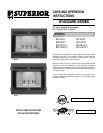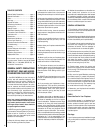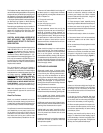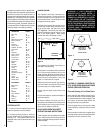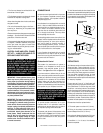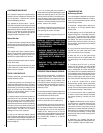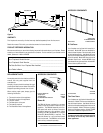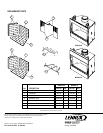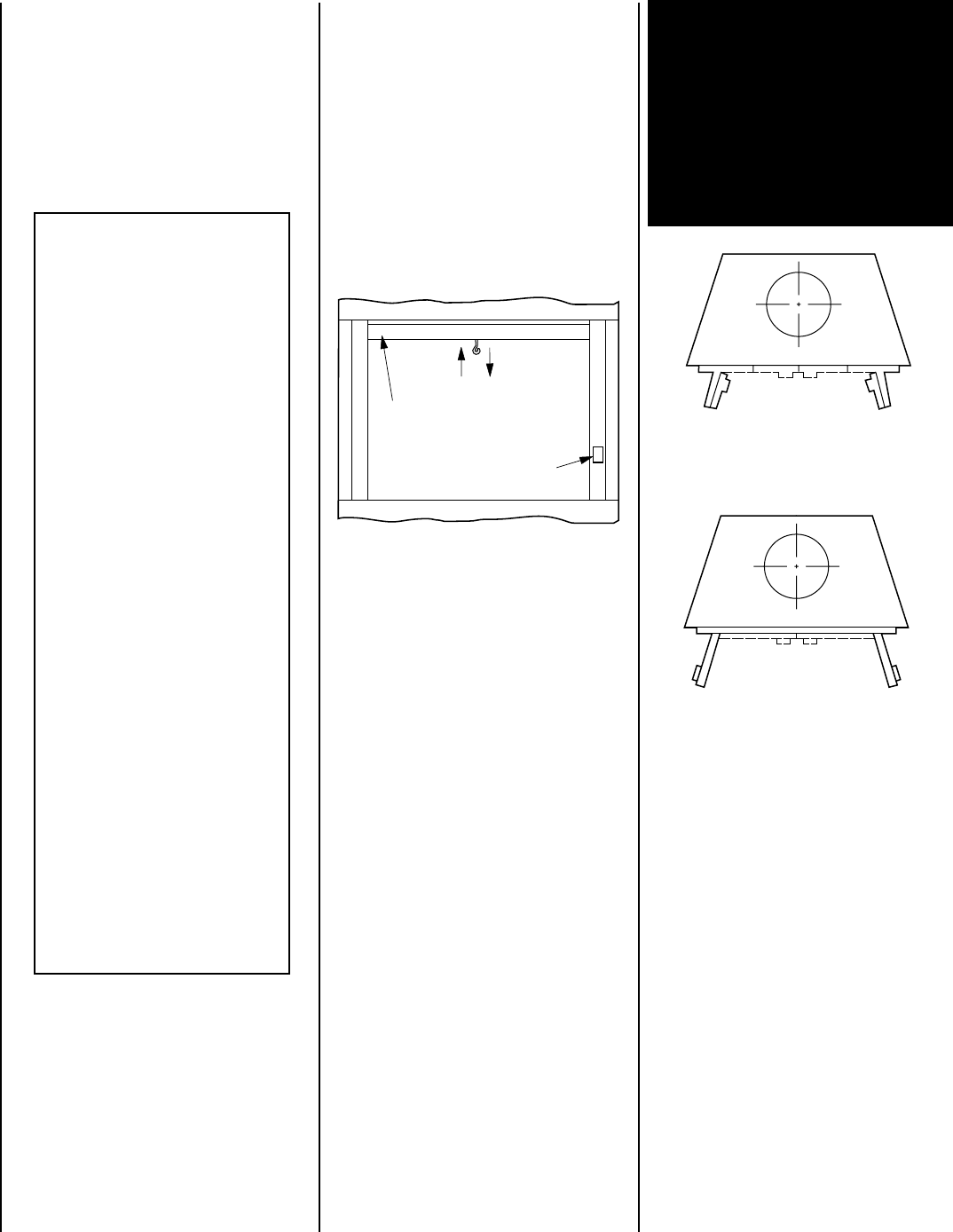
4
NOTE: DIAGRAMS & ILLUSTRATIONS NOT TO SCALE.
STARTING A FIRE
1. To start a fire in a the fireplace properly, first
check the operation of the flue damper.
2. To prevent smoking at start-up, close any
window located near the fireplace when first
lighting a fire. The closed windows may be
reopened once a chimney draft is drawn in the
fireplace.
Glass Doors
Fully Open or
Fully Closed
(Bi-Fold Doors)
Glass Doors
Fully Open or
Fully Closed
(Twin-Pane Doors)
Figure 3
Figure 2
The appliance flue damper must always re-
main open when operating.
2. The grate in the firebox should be centered
on or over the bottom hearth so your fire can
breath properly. Crumble and twist plenty of
newspapers UNDER the grate and criss-cross
some small dry kindling sticks on top of the
paper or on the bottom of the grate.
3. Build a pyramid of three split logs (split will
start much faster). Arrange the uneven wood
to provide plenty of air space between.
4. Now, light the paper at both sides of the
firebox.
5. Close the screens to prevent the escape of
sparks and embers.
6. Close the damper only when your fire is
completely out and ashes are cold. Keep closed
when fireplace is not in use to prevent unnec-
essary loss of heated or cooled air.
GLASS DOOR OPERATING SAFETY
PRECAUTIONS AND INSTRUCTIONS
These fireplaces may be equipped with glass
doors. Refer to the end of this document for a
listing of the glass doors approved for use with
these fireplaces.
HARDWOODS DENSITY
Alser, Red .41
Ash .49-.60
Aspen .38-.39
Basswood, American .37
Beech, American .64
Birch .55-.65
Butternut .38
Cherry, Black .50
Chestnut, American .43
Cottonwood .34-.40
Elm .60.63
Hackberry .53
Hickory, Pecan .60.66
Hickory, True .69-.75
Honey locust .66 (est.)
Locust, Black .69
Magnolia .48-.50
Maple .48-.63
Oak, Red .59-.67
Oak, White .64-.88
Poplar .42
Sassafras .42
Sweet gum .52
Sycamore, American .49
Tanoak .64 (est.)
Tupelo .50
Walnut, Black .55
Willow, Black .39
SOFTWOODS DENSITY
Bald cypress .46
Cedar .31-.47
Douglas Fir .46-.50
Fir .32-.43
Hemlock .40-.45
Larch, Western .52
Pine .39-.59
Redwood .35-.40
Spruce .35-.41
Tamarack .53
Figure 4
CAUTION: IF A SMOKING CONDITION EX-
ISTS, GLASS DOORS SHOULD BE CLOSED
DURING FIREPLACE OPERATION.
Care and Cleaning of Your Glass Doors
Never clean the glass when the doors are hot.
Do not use ammonia or ammonia based glass
or household cleaner to clean the glass or the
door frame. An ammonia based cleaner will
damage the finish of the glass door.
Clean the glass doors by wiping with a damp
towel followed by a clean dry towel to remove
streaks.
Remove stubborn stains from the glass with a
mild soap solution and a towel dampened with
clean water. Dry with a clean dry towel.
Damper
Closed
Damper
Open
Lintel
Combustion
Air Actuator
WARNING: IF YOUR FIREPLACE IS
EQUIPPED WITH GLASS DOORS, IT
SHOULD BE OPERATED WITH THE
DOORS FULLY OPEN OR FULLY CLOSED.
IF THE DOORS ARE LEFT PARTIALLY
OPEN, GAS AND FLAMES MAY BE DRAWN
OUT OF THE OPENING, CREATING RISKS
OF BOTH FIRE AND SMOKE. REFER TO
FIGURES 3 AND 4
FOR PROPER OPER-
ATING CONDITIONS.
A standard cord has a volume of 128 cubic feet.
This figure also includes the air space between
and around the wood. The actual volume in a
standard cord is between 60 and 100 cubic feet;
depending on how tightly the wood is packed.
Assuming that you are comparing two standard
cords of different species but the same volume
and moisture content, the denser species will
provide more BTU’s. The table of wood species/
densities reveals more helpful guidelines.
DAMPER CONTROL
This fireplace is fitted with a manually con-
trolled chimney damper. The chimney damper
should be closed when the fireplace is not in
use to prevent cold air from entering the home
through the chimney system.
The damper is controlled through the use of a
control lever located within the firebox open-
ing at the top center just behind the firebox
lintel (
Figure 2
). The control lever snaps into
place at the extreme range of motion, up and
back in the closed position. When pulled
forward and down, the damper is open.



